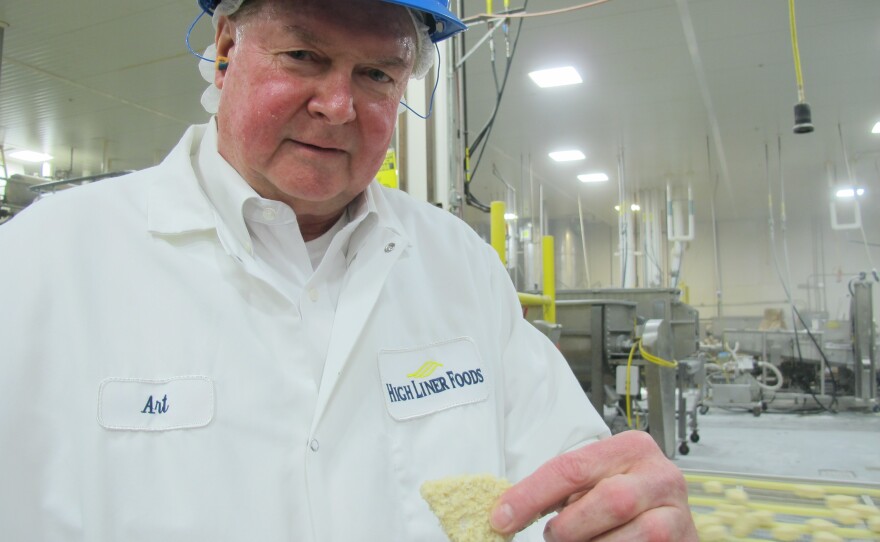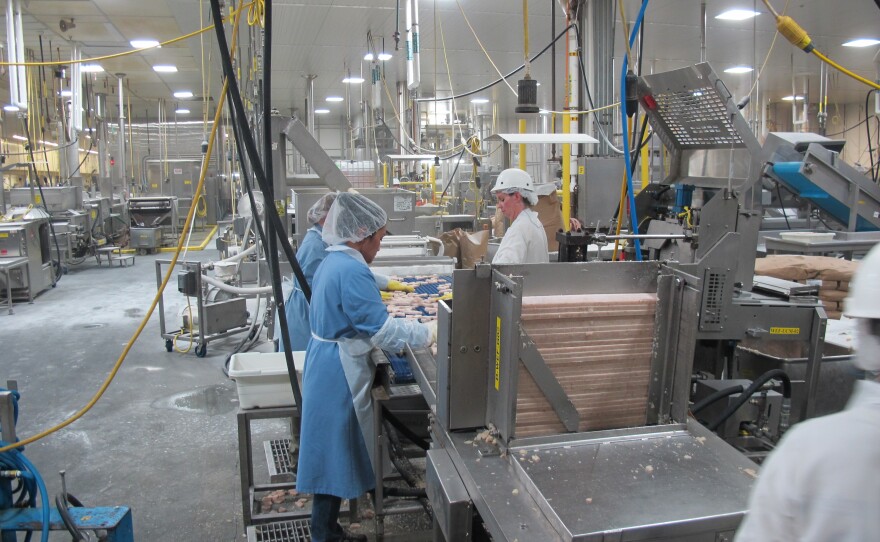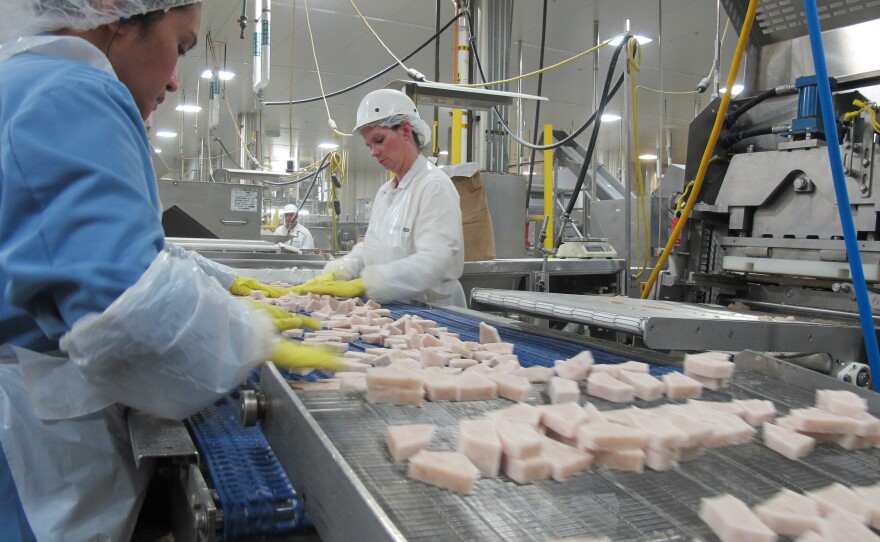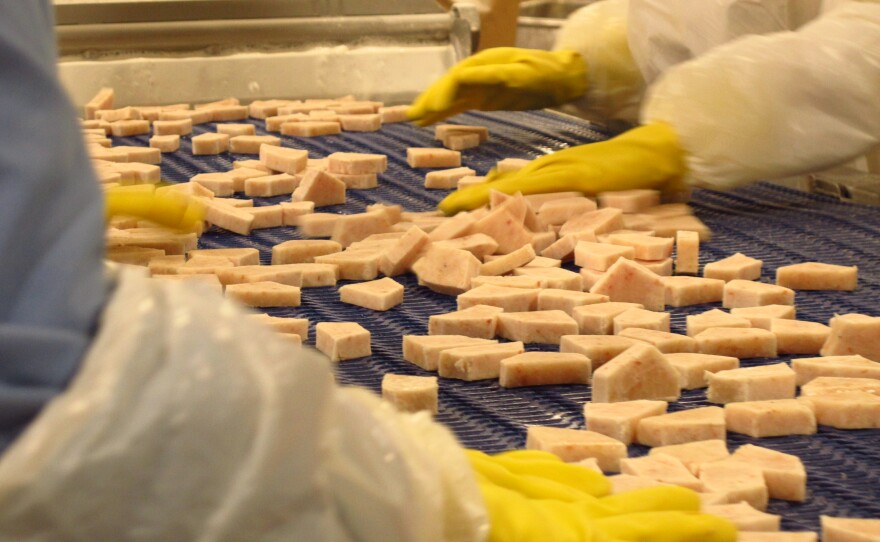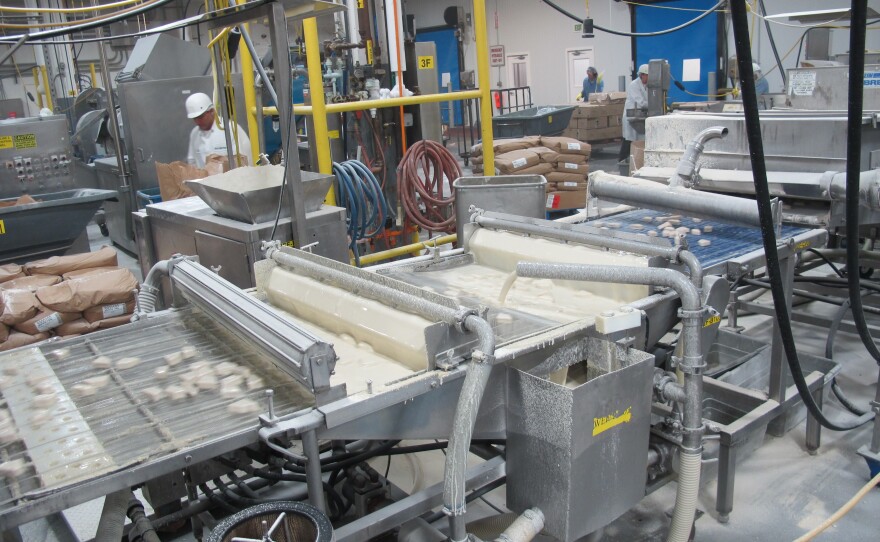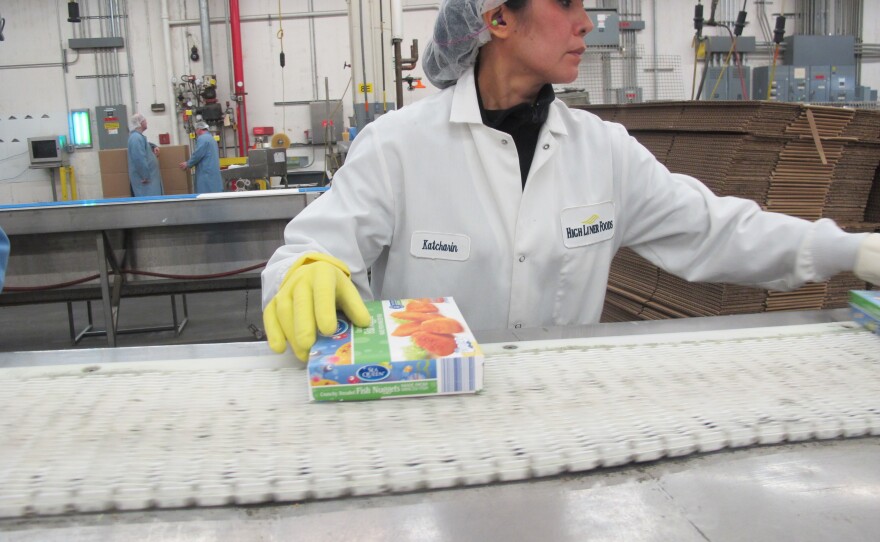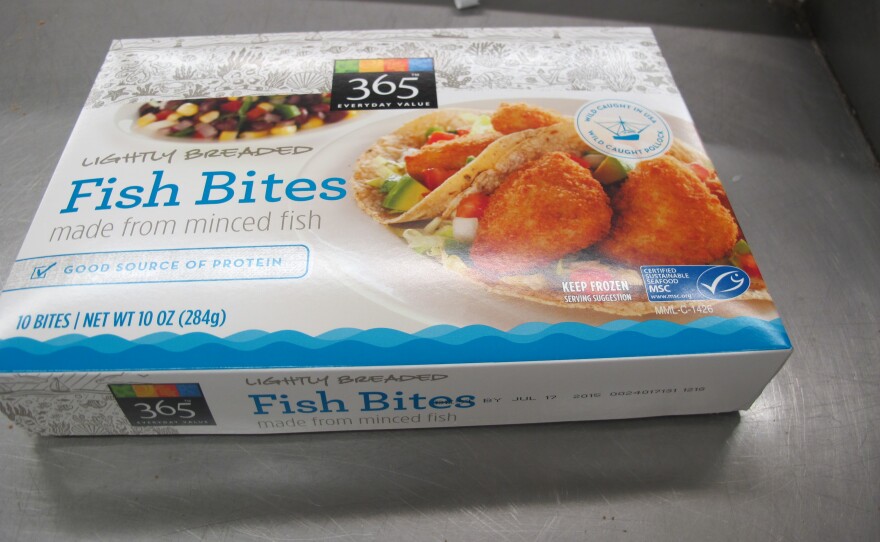Congress is poised to vote on what is always a contentious matter -- a new farm bill. With just a few outstanding issues, lawmakers are honing in on an amendment that has to do with catfish. It’s an issue that cuts across regional, rather than partisan lines. And on the New Hampshire Seacoast, it hits close to home.
Fish For A Tight Budget
Local fishermen aren’t the only ones who make their livelihood selling fish along the Seacoast. Here at the High Liner Foods in Portsmouth, 65 million pounds of frozen fish leave the assembly line each year.
On the plant floor, workers heft frozen slabs of ground fish from cardboard boxes. A machine slices them into 2x4s, then feeds them onto a conveyer belt. Senior Vice President of Plant Operation, Art Christianson explains. “We’re basically using [fish] block, but shaping it into a form so that it is identical to a fillet shape.”
This plant also makes breaded fish sticks, nuggets and patties for retail chains like Shaw’s and Costco.
In this segment of the fish market, it’s not about tasting the sea. High Liner Foods Chief Operating Officer Keith Decker says “most Americans do not want their fish to taste like fish. They want it to taste bland and white.”
Like tilapia, Decker says, and Catfish. Especially Catfish. “This is the perfect fish,” Decker says. “It's very inexpensive, it offers a great value.”
But there’s a hitch.
A Catfish Quagmire
In the early 2000s, companies like High Liner began importing Vietnamese catfish, which are far cheaper than American catfish. Southern catfish farmers in places like Mississippi lost a lot of business. They didn’t want their catfish confused with what they saw as an inferior and poorly regulated foreign fish.
Enter Senator Thad Cochran of Mississippi. He’s the ranking member on the Senate Agriculture Committee, and has an aquaculture center named after him at the University of Southern Mississippi.
In 2008, Cochran added a catfish provision to the 2008 Farm Bill. It called for catfish to be inspected by a new office at the US Department of Agriculture. All other seafood is inspected by the FDA.
“A Waste Of Money”
“It doesn’t make sense,” says New Hampshire Senator Jeanne Shaheen. She and Arizona Senator John McCain hope to repeal the provision in Farm Bill negotiations this week.
They say it’s a waste of money, and the Food and Drug Administration is better suited for the job. “They’re the ones who have historically done this,” Shaheen says. “it costs [the FDA] about $700,000 a year.”
That’s compared to the new operation backed by Cochran, which will cost $30 million in set up expenses and $15 million a year to operate. That’s according to the Government Accountability Office or GAO.
But that doesn’t mean the new inspection regime will end. That’s largely going to be decided by Congressional negotiators.
Fingers Crossed
Back on the assembly line at High Liner Foods, hundreds of fish pieces from 30 different countries roll along a conveyer belts. VP of Operations Art Christianson says they are perfect for customers looking for low prices. “On the retail market,” he says, “they want to hit a certain price point.”
COO Keith Decker is watching the catfish fight very closely. High Liner operates in the US and Canada, and its sales have reached $1 billion annually. But, Decker says, to continue to expand, he needs to be able to import catfish.
“We want to put our sales resources and R&D behind it, but we've hesitated to, given that this legislation is looming out there.”
So, Decker has his fingers crossed. As do Senators Shaheen and Cochran. A final vote on the farm bill compromise is expected next week.


